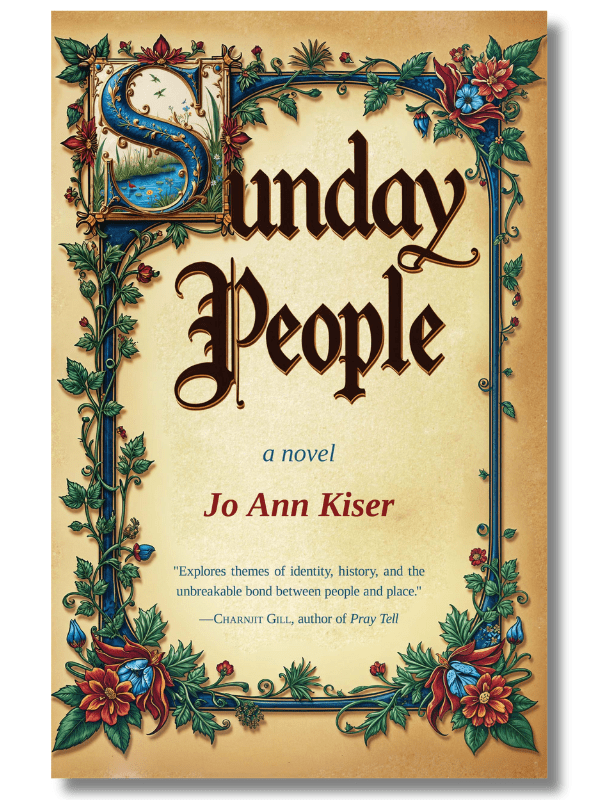Sunday People
by Jo Ann Kiser
Genre: Literary Fiction
ISBN: 9798891325777
Print Length: 194 pages
Publisher: Atmosphere Press
Reviewed by Haley Perry
From religion and history to trauma and affairs, Sunday People navigates the legacies that tie people together.
“I am dying. I look at my family, as I’m doing right now in church, and I want them to know the truth about me, whatever that means.”
In a small mining town in 1992 Kentucky, the Caskill family gathers to celebrate a wedding. Here, sixty-eight year old Orson reflects on his life and impending death. Surrounded by relatives and friends, they too reflect on their own lives and how Orson has shaped them. Following this day, the novel jumps forward twelve years as Orson’s granddaughter, Melissa, returns to Kentucky, grappling with the family history that has shaped her.
Sunday People is presented in ways reminiscent of various art forms; it begins with character sheets, ends with a “postlude,” and the family is having a biography written about them. Together, this creates the sense that the family is being put on display for the reader.
Some details are outside of our grasp though, including references to characters and past events we do not know. Since the majority of plot points occur in memory, much of it is nonlinear. The novel is intentionally tricky in this way, as shown through the initial character sheets entitled “The Caskill Complex” and “The Alseck Complex.” The book, like the families, is a tangled-up ecosystem. This creates a puzzle-like plot where secrets are hinted at by one character and come to light in another character’s musings. The effect of this is an authentic voice—reminiscent of how someone might genuinely think.
Sunday People contains a wide cast of multi-generational characters. There are religious and non-religious folks, upstanding citizens and criminals, traditionalist families and modern feminists, Democrats and Republicans, laborers and professors, financially stable and financially unstable people, and loving and abusive families to name a few. Many of the characters are unlikeable, but it’s intentional. They are understandable, real, pushing the reader to analyze the dark depths of the human psyche.
The novel does a particularly good job of showcasing events across time to highlight the function of generational trauma. For instance, some characters who struggle with mental health or watch their family members struggle in the present moment reflect on their ancestors’ mental illnesses in relation to their own situation.
The language is dynamic and often reflective of the narrator and their emotions. While the pace is on the slower side, the tone is appropriately heavy and essential to the exploration of its themes.
Sunday People is a deeply intimate portrait of family and generational ties. Kiser does not shy away from tough subjects, instead inundating the work with hard realities and philosophical questions that are difficult to contend with. It is the type of novel that begs further examination and one that would be a joy to re-read for its sharp language, symbols, and structure.
Thank you for reading Haley Perry’s book review of Sunday People by Jo Ann Kiser! If you liked what you read, please spend some more time with us at the links below.
The post Book Review: Sunday People appeared first on Independent Book Review.
